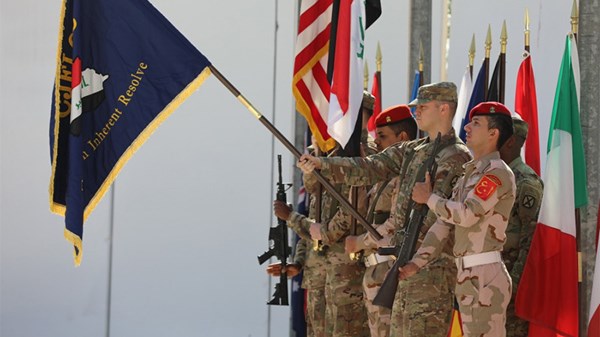US-led coalition to stay in Iraq
The US-led international counter-terrorist coalition will maintain its presence in Iraq as long as it considers necessary, the alliance’s official spokesperson Colonel Sean Ryan announced at a press conference in Abu Dhabi on Sunday.
“We will leave our forces in Iraq for as long as we consider necessary,” the military TV channel Al Hadath cites Ryan as saying. “After the Islamic State (ISIS) terrorist group was defeated from a military perspective, the primary reason [for maintaining the presence] is stabilization efforts.”
The US withdrew its forces from Iraq in December 2011 and brought them back in August 2014, after ISIS captured extensive territory in the country. Iraqi Prime Minister Haider al-Abadi announced victory over the terrorist groups in December 2017. The operation to eradicate the terrorists was carried out with the backing of the US-led coalition. At the start of February, al-Abadi said that Baghdad had approved a plan to gradually reduce the alliance’s presence. Iraqi MPs have demanded that this process be expedited.
According to the Arab media, the US has 5,500 troops deployed in Iraq. They are stationed in Baghdad at the Camp Taji and camp Victory; in the western Anbar Governorate at the Ayn al-Asad and al-Taqaddum airbases; in the north in Nineveh at the al-Qayara airbase; at the Kirkuk airbase, and at the Balad airbase in the Saladin Governorate. There is also a US base in Erbil, the capital of Iraqi Kurdistan. The forces have the task of training Iraqi security forces, providing military consultation, as well as armed support.
The international anti-ISIS coalition was formed at the US’s initiative at a NATO summit in September 2014. Its efforts are supported by roughly 60 countries, including the UK, Australia, Jordan, France, Denmark, the Netherlands, Bahrain, Saudi Arabia and the UAE. In December 2017, US President Donald Trump announced that his country had defeated ISIS in Syria and in Iraq.
